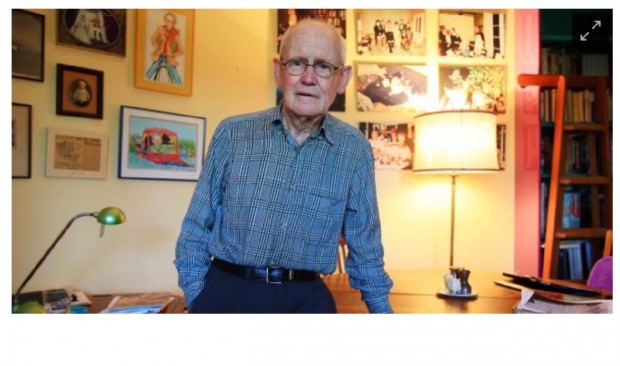July 26, 2017
Victoria’s euthanasia bill ‘endorsed suicide’: Deputy Premier
The Australian, Samantha Hutchinson
The Deputy Premier of Victoria has split from Daniel Andrews and heavily criticised his party’s voluntary euthanasia laws, describing them as “endorsed suicide” that puts the vulnerable at risk.
James Merlino said he would vote against Labor’s bill.
“I have deep concerns that these laws put at risk some of our most vulnerable Victorians, who could be subjected to coercion,” he told the Herald Sun newspaper.
“This bill also endorses suicide, which is a line I don’t think our society should cross.”
The rift in the party comes ahead of a planned conscience vote on the legislation before the end of the year. Mr Merlino’s strong comments foreshadow an emotionally charged debate of the issue of voluntarily assisted dying.
Mr Andrews said yesterday cabinet had adopted all recommendations from an advisory panel and the bill would be introduced to parliament this year.
The Herald Sun attempted to survey all 128 state MPs for their positions on the bill, but only 57 responded. Of those who had replied last night, 29 said they were leaning towards voting “yes”, 13 said they would vote “no”, and 15 said they were undecided.
The legislation will prescribe a scheme accessible only to terminal patients who are sound of mind and suffering an incurable disease that is likely to kill them within 12 months.
The Premier described the scheme as the most conservative voluntary euthanasia program in the world, which would balance a need to assist patients at the end of their lives while providing more than 68 safeguards, including steep penalties for coercion.
“Last year we promised to consider one of our biggest and most difficult issues giving terminally ill Victorians a genuine choice about the end of their life,” Mr Andrews said. “This is about dignity, choice and giving Victorians the support and care they deserve in their final moments.”
The bill is still being drafted, according to Health Minister Jill Hennessy, who is expected to introduce the legislation in coming weeks to the lower house.
The vote is widely expected to pass through the lower house before coming down to the wire in the Legislative Council where some MPs say they are still deciding which way to vote.
Liberal MP Georgie Crozier said she was undecided, but applauded the government for its extensive work formulating the framework through a series of parliamentary committees and independent panels.
“They’ve done the right legwork on this … but I need to be secure in my mind that we’re only talking about the extreme cases, and that the right safeguards are in place,” Ms Crozier said.
Attorney-General Martin Pakula yesterday said that he had changed his mind on the issue and would now support the legislation because of the extensive safeguards.
Opposition Leader Matthew Guy said he would not stand in the way of a conscience vote, as he reaffirmed his stance against the proposed bill. “There are some of us who go into this debate with a point of view that’s firm and won’t change,” Mr Guy said. “A free vote means a free vote.”
Under the scheme which is only open to permanent residents of Victoria, patients would be required to submit three requests to die, with a wait of at least 10 days between submitting the first and third requests, except in extenuating circumstances where they are likely to die within the 10 days.
Exit International member and carer Rob Cane, 81, said he hoped MPs would rally behind the legislation, after watching a companion experience the aftermath of strokes and declining quality of life. He was also disappointed that the program’s explicit requirement for patients to be sound of mind ruled out mental illness and dementia sufferers.
“Certainly it’s very restrictive and it’s a pity it’s not broader, but it’s a good first step,” he said.
Euthanasia was legalised in the Northern Territory in 1995, but it was voided in 1997 by a statute of the Australian parliament.
